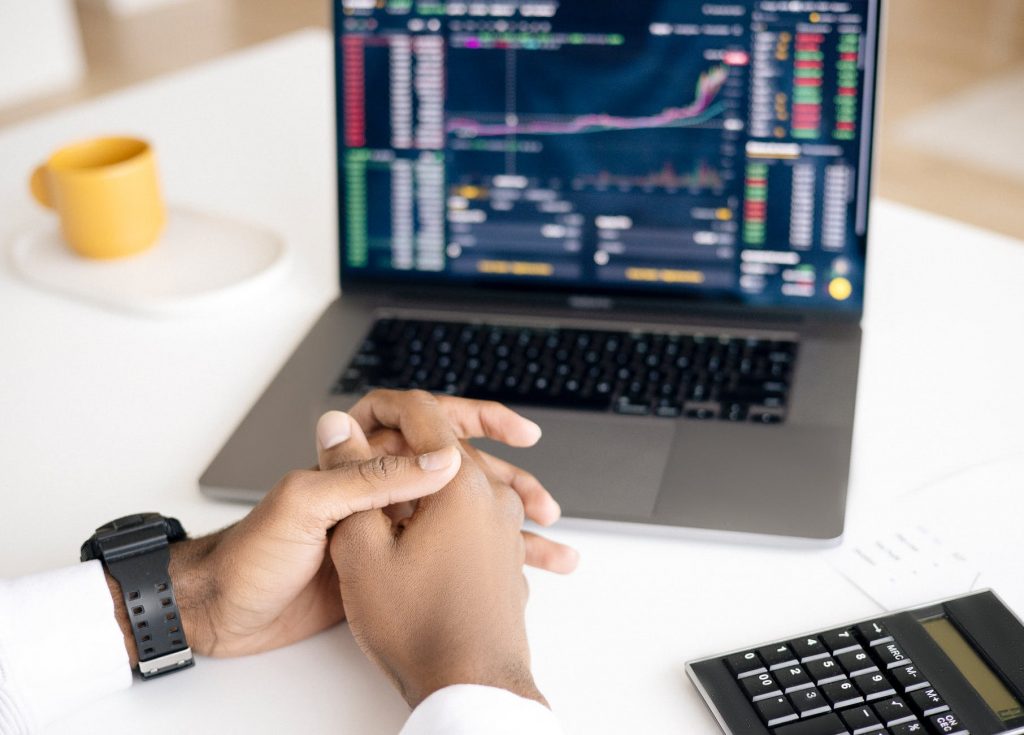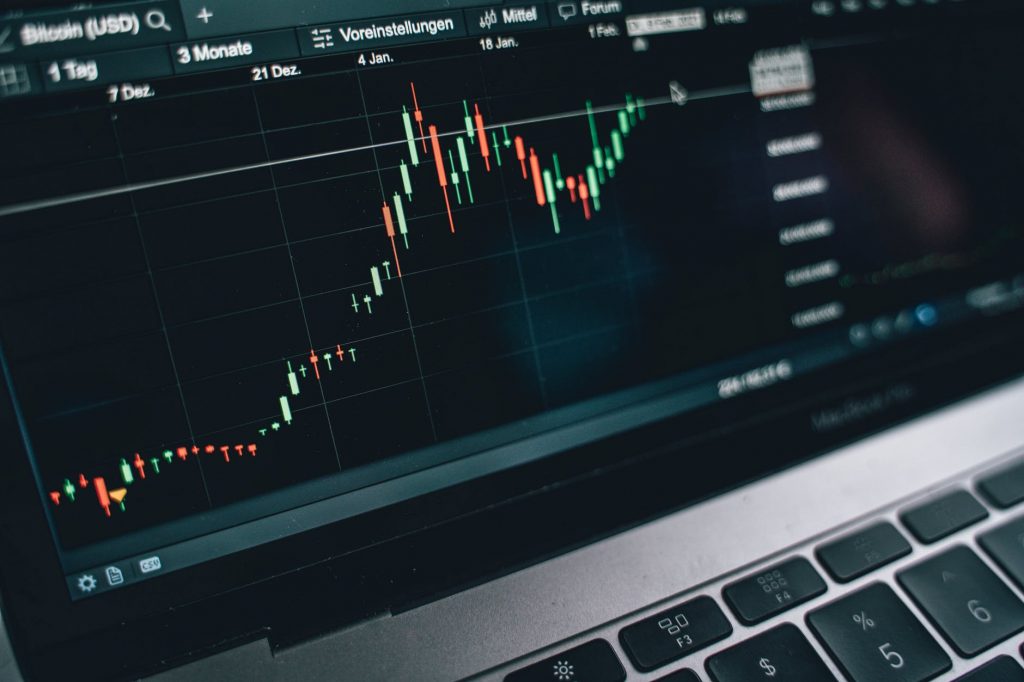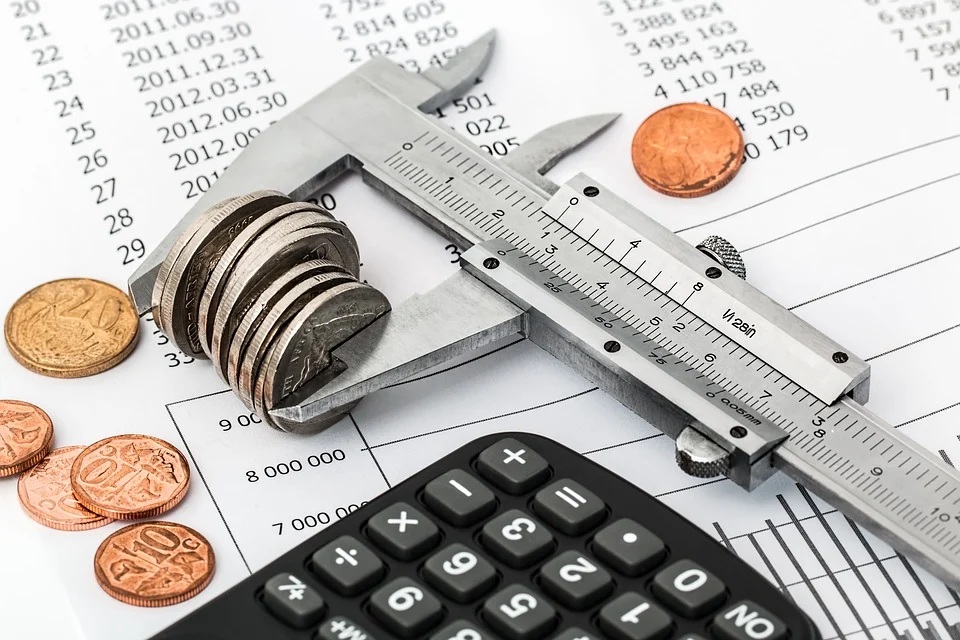DMA brokers are never in short supply in the forex, CFD and stock market, though it can be difficult to know where to start when choosing one to trade with. In this article, we review the difference between DMA/STP and ECN brokers to help you answer the question: What does DMA mean for traders? We’ll also list some key features of the best DMA forex and CFD brokers.
What Are DMA Brokers?
DMA (direct market access) is a non-dealing desk (NDD) execution model that refers to providers who allow you to place buy and sell orders directly onto order books. As such, traders enjoy greater visibility of the market whilst interacting with financial market exchanges directly.
This differs from over-the-counter (OTC) dealing whereby prices are quoted through a network of intermediaries (market makers). DMA doesn’t rely on the aggregation of orders over-the-counter and therefore investors can choose their prices.

Direct market access is not to be confused with two other NDD business models: straight-through processing (STP) and electronic communication network (ECN). Let’s explore the key differences of these types of brokers below:
STP
In this model, orders are routed to the broker’s liquidity providers (hedge funds, banks and big investors) which act as the counterparty to your trades.
These providers will compete for the best bid/ask spreads, on which the broker then charges a markup.
In some cases, DMA can be provided as a separate benefit of an STP model, where orders are passed directly to the liquidity pool at the best possible price. Note that the execution speed with DMA brokers is usually faster than with STP models.
ECN
Electronic communication network (ECN) technology acts as more of a hub for liquidity sources. Whilst STP can select which liquidity providers they can deal with from their liquidity pool, ECN brokers are connected to a range of anonymous networks where there are no direct contracts. ECN brokers make money from commissions, rather than bid/ask spreads or markups, meaning traders get ultra-tight floating spreads. Note that ECN trading is usually capped at a 0.1 minimum lot size, as there are few liquidity providers who allow less. This explains why ECN trading is less accessible for inexperienced traders.
Now that we know a little more about non-dealing desk models and the main features of DMA brokers, let’s take a look at some key pros and cons.
Pros Of DMA Brokers
- Comparatively low trading costs – Compared to OTC models, the costs of trading with DMA is usually lower because there is no manual intervention; the broker merely acts as an agent.
- Market transparency – There is an equal playing field between participants and greater anonymity with DMA.
- This means you can essentially see other traders’ movements in the market, from which you can gauge market sentiment.
- Competitive pricing – Prices are derived from numerous banks, exchanges and liquidity providers, making them more competitive than OTC.
- Market visibility – Orders are fully visible within the whole market, meaning participants can also gauge liquidity.
Cons Of DMA Brokers
- Not suitable for small traders – DMA is only recommended for active traders who deal in large volumes because of the complexity and risks involved.
- Strict rules – Since DMA is heavily regulated, trading becomes less flexible than OTC trades. Repeat dealing is restricted with DMA and deals can be rejected if you are trading outside the usual market size. In addition, once an order has been executed, you cannot reverse or change it.
- Complex – There is possibly an increased risk as DMA investors are empowered to become market makers when they deal directly into the order books of liquidity providers.
Choosing DMA Brokers
There are plenty of DMA brokers that you can choose from, though there are a few factors to consider before determining which is the best one for you. If you’re an experienced trader, follow our guide below for some top tips on what to look for in good DMA brokers.
Robust Technology
Since DMA works by connecting you directly to top liquidity providers, it’s important that your broker offers technology that can facilitate fast order routing.
For example, IG Group uses its L2 Dealing platform for DMA trading of forex and shares. Saxo Group also uses NY4, LD4 and TY3 data centres and more than 25 tier 1 liquidity providers to ensure you get the best possible DMA prices within the interbank market. Interactive Brokers also offers SmartRouting technology for all orders, whether they are marketable or not.

Market Access
Not all DMA brokers will offer every market, so check this before you sign up. IG allows CFD shares and share dealing with over 12,000 instruments, plus forex CFDs with over 80 pairs.
Top DMA Broker
Admiral Markets is a top DMA broker that offers a vast range of over 4,000 assets, including stocks, bonds, ETFs, and cryptocurrencies.
Costs
Since DMA accounts are primarily designed for large or institutional traders, commission rates can be negotiated with the broker with ease. The commission rates depend on your relationship with your broker or your expected trading volume. Many brokers offer reasonable discounts for certain trading volumes. Ensure that you take note of any minimum account opening requirements as well. For example, IG requires a £1,000 minimum funding for the L2 Dealer account.

Regulation
Traders should be cautious of any forex scams or non-reputable brokers that claim to offer DMA pricing. Brokers that are licensed provide traders with peace of mind as well as the best possible support and protection for their trades. IC Markets and FP Markets, top forex and CFD brokers, are regulated in multiple jurisdictions, including Australia and Cyprus. Admiral Markets is also one of the top-regulated DMA brokers in the UK.
Final Word on DMA Brokers
In this article, we’ve discussed the key features of top DMA forex and CFD brokers, including Interactive Brokers, IG, and IC Markets.
Whilst the DMA business model does offer greater transparency, visibility and competitive pricing, the strict rules of DMA trading means greater complexity and risk.
If you’re a large investor, the criteria provided above should be a good starting point, though it might be worth getting in touch with your chosen broker directly to discuss your options.
FAQ
What Is a DMA Broker And What Does It Mean When Trading?
DMA (direct market access) is the process of being connected directly to top liquidity providers within the broker’s selected pool.When you trade with DMA pricing, you can place buy and sell orders straight into the order books of these providers, meaning you by-pass the price aggregation stage over-the-counter.
What Is The Difference Between STP And DMA?
STP (straight-through processing) is somewhat similar to DMA, as both are non-dealing desk models that connect you straight to the interbank market.
The main difference is that STP brokers select the most competitive prices offered by their liquidity providers, whereas DMA pricing is pre-determined by the trader and passed directly on to the provider.
What Is The Difference Between ECN And DMA?
Again, ECN brokers are non-dealing desk, but instead of individual contracts being passed on with DMA, ECN brokers act as a hub of providers, where there is no direct contract involved.ECN brokers are usually characterised by ultra-slim spreads and commission charges.
What Is The Best DMA Broker?
It depends on your location and preferences. Use our list of DMA Brokers to find the best one for you, wherever you’re located.
Some of the top DMA brokers in the world include IC Markets, IG Group and Admiral Markets, though the rankings vary depending on your jurisdiction.
In South Africa, for example, one of the top choices for DMA trading is AvaTrade.
How Do I Sign Up With A DMA Broker?
To start trading with DMA pricing today, you will need to complete an online registration process with your chosen broker.Note that institutional investors or large traders may need to contact the broker directly to discuss specific account requirements.
Can I Trade With DMA Pricing In Argentina?
It is possible to trade with DMA pricing anywhere in the world, as long as it is offered by your broker.Always ensure you choose a regulated and reputable broker to invest your capital.
